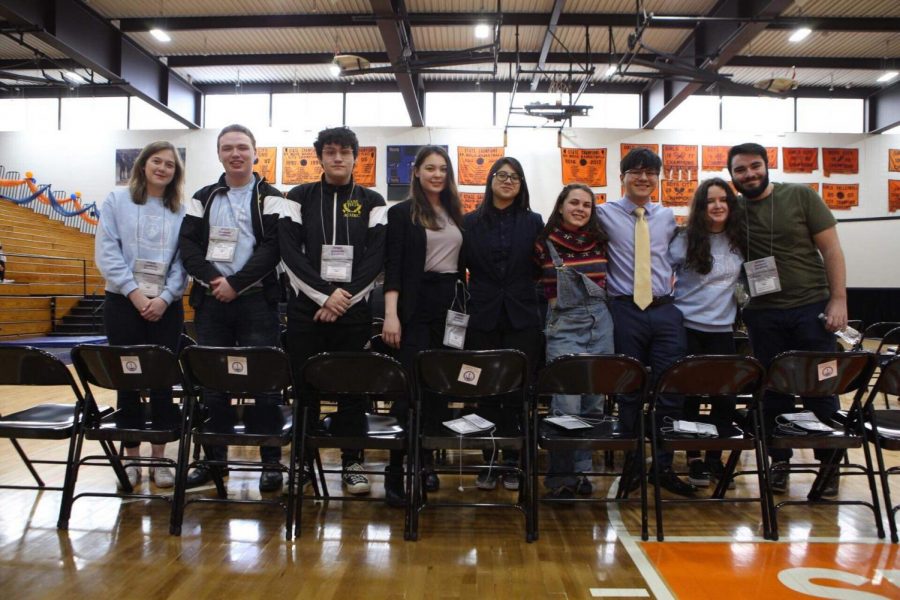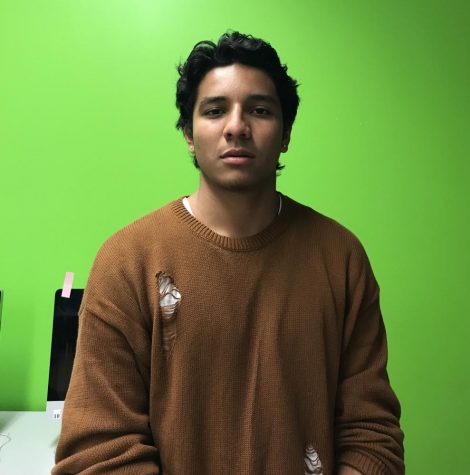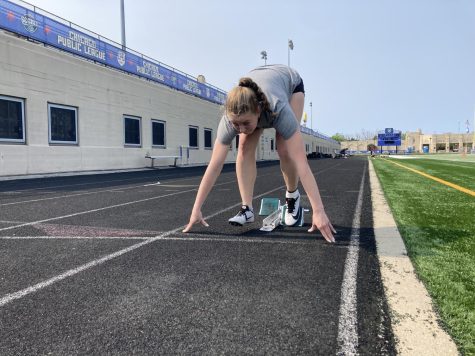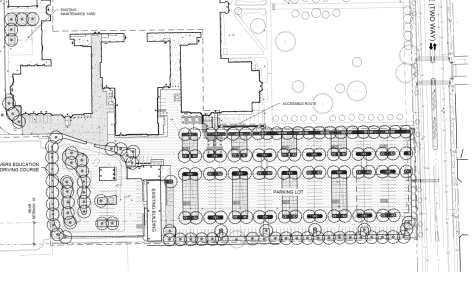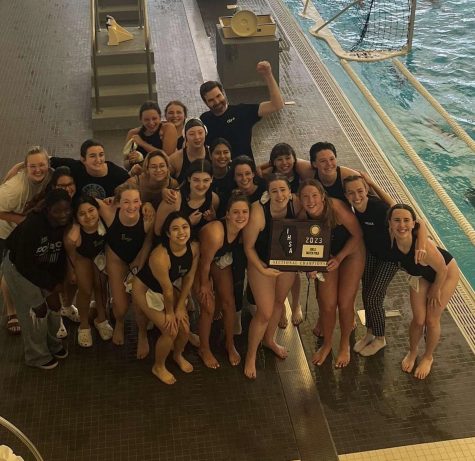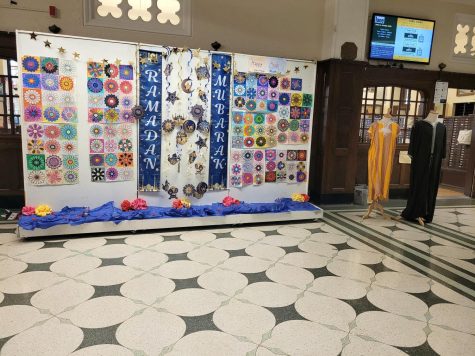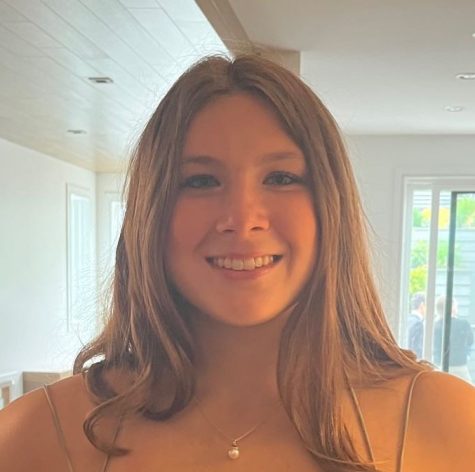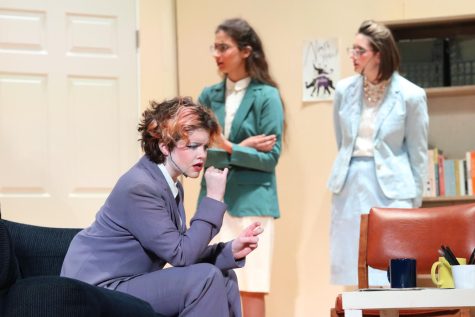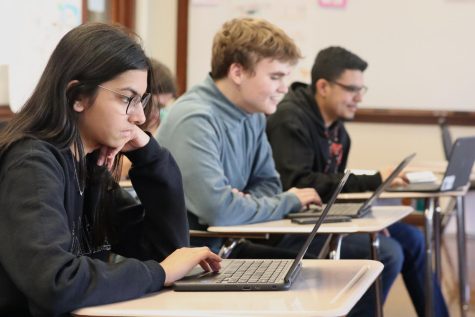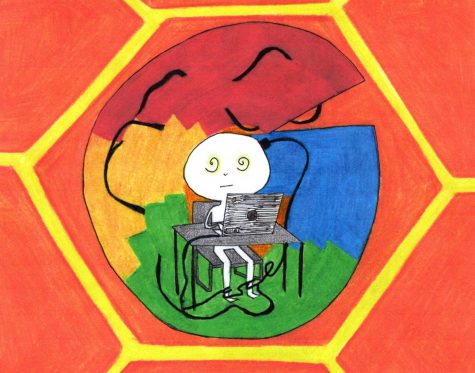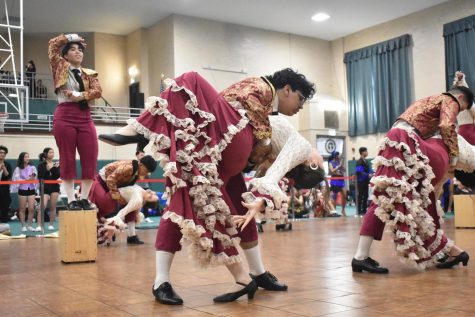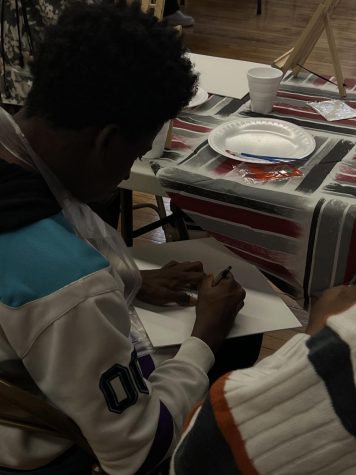Academic Decathlon team inches closer to state championship
The Academic Decathlon team posing after the State championship award ceremony at Northeastern Illinois University. (Photo courtesy of Mr. Campos)
April 1, 2019
As Grace Aldrin walked into the room she noticed that all the judges had their eyes on her, and taking a deep breath, she started to talk.
Aldrin, Div. 960, was part of the Academic Decathlon team that competed in the Illinois State Championship at Northeastern Illinois University on March 16.
The team finished second to Whitney Young, who won their 37th consecutive state championship.
This year’s topic was the 1960s, with a major focus on the art, music, science, social science, mathematics, economics, and literature of the time period.
Before state the team received about 1,000 pages worth of material from the Academic Decathlon committee, with packets averaging 100-150 pages for each of the seven topics.
Teams were made up of nine students that competed ten events worth 1,000 points each which was compiled of seven multiple choice tests, an essay, an interview and two speeches, one of which was impromptu.
The top two scores from each section of the tests were combined for the team’s total score. Lane had a total score of 47,682 out of the possible 60,000, just 700 points shy of Whitney’s first-place score.
Noting how rigorous the competition is, team president Kole Deighan, Div. 990, said he tasked himself with keeping the team morale high.
“I just tried to get them pumped up and let them know we are the closest we’ve been in forever, and just made sure they are putting in the work, trying to get ready and feeling positive about the outlook,” Deighan said.
For each of the nine competitors representing Lane the weaknesses and strengths on these topics varied heavily, according to Academic Decathlon member Joseph Hoppenworth, Div. 951.
“It depends on what experience you have,” Hoppenworth said. “For example, if you have a musical background, music theory is easier to you; if you have a science and physics background, lasers and how they work will come much easier to you.”
Another member, Leo Macksey, Div. 078, expressed how much harder he had to work outside of the classroom in order to be prepared for the competition because of his lack of background with the material.
“They just throw random math at you, like stats, and I’m in pre-calc, and it doesn’t relate to the ‘60s at all,” Macksey said. “I never took the classes that it covered, so I never touched that stuff. Music was also hard because I never touched an instrument, and I don’t understand music theory.”
Besides memorizing content for the multiple choice tests, students had to practice giving a prepared speech, especially for the impromptu speech, as they receive the topic on the spot.
This is one of the hardest portions of the competition, according to competitor Priscilla Lagunas, Div. 077.
“One of the hard things is not knowing what to expect,” Lagunas said. “They give you a really random subject, and you have a minute to prepare a minute and speech on it. You might not connect with your audience as well as you think you are, so that can also hurt your score a lot.”
In addition to their eighth period Academic Decathlon class taught by Mr. Campos, the students said that they would spend six or seven days a week studying together in the weeks leading up to the competition.
“It feels really good to study and then do really well in the competition,” Lagunas said. “So when they keep calling up your name to accept a medal, it’s kind of like ‘I deserve this because I work so hard for it.’ It pushes you to work hard for the next competition as well.”
Even though the preparation for the competition may require hard work, the team is able to take breaks and create a stronger bond as a club, Hoppenworth added.
“The great part about being on the team is that not only do you get medals, but you also get to watch and see your friends get medals for things that they worked so hard for. It’s really rewarding,” Hoppenworth said. “I was disappointed that I didn’t get as many gold medals as I wanted, but then I realized that my teammates were each getting gold medals, and I would rather be second to them than anyone else.”
Now that the team’s season has ended their focus has shifted to next year’s topic, Health and Wellness, as they look for underclassmen to join the team in hopes of dethroning the reigning state champions.
The tryouts for the team took place in the last week of March.

